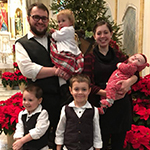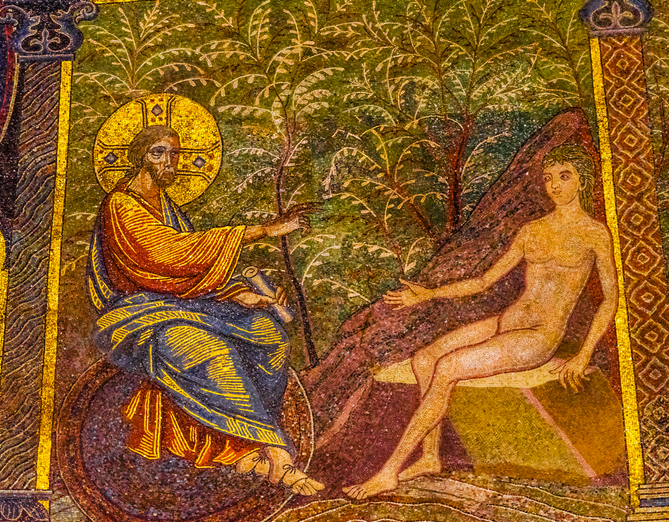When I teach junior high classes about creation I usually draw a large circle on the whiteboard. I tell my class that this represents everything God created and I ask them to shout out the things that would go inside the circle. “People!” is one of the first things the student’s shout and the circle quickly gets filled in with things like plants, animals, time, matter, and angels. At this point, I like to have fun with them and write “Hell” and “Satan” in the circle and a lively discussion usually ensues.
There are a couple things, however, that aren’t in this circle, namely, death and suffering.
Much like how darkness is not a thing in itself, merely the absence of light, death, and suffering can only be understood in a negative sense, that is, as a lack of something else. The book of Genesis says, “the LORD God formed the man out of the dust of the ground and blew into his nostrils the breath of life, and the man became a living being” (Gen 2:7). God gave Adam and Eve life, but through their sin they rejected life. God created the garden with order and integrity, but through their sin, our first parents rejected this wholeness. It is here that death and suffering first entered creation.
Thus suffering ought not be. God did not create suffering, it only exists because we live in a cosmos fractured by sin. Our bodies and minds are supposed to be whole and integrated, but because of our limited and broken world, and because of our sin, we experience illness, suffering, and death.
Simply put: God does not want us to suffer. Period.
But how often do we get this wrong, do we lie about God? In the midst of other people’s suffering, we say “This is all a part of God’s plan.” And in our own suffering, we say, “God wants me to suffer so I can offer it up for a greater good.” Sometimes we say these things because we don’t know what else to say when our friend’s loved one just died. Sometimes we say them because the question of why God will allow us to suffer is too difficult for us to understand. But while these statements are well intended, they are also wrong.
Now, there is the mysterious and wonderful Tradition within Christianity that we can offer up our suffering. We believe in a God who not only stoops to our level and suffers with us (which is an incredible thing in itself), but who also allows us to give our suffering meaning by uniting it with his suffering for the sake of others.
However, to say that God, in his eternal goodness, can transform the evil of suffering into something good doesn’t mean that God wills the suffering in the first place. The pious heresy that our suffering is a part of God’s plan distorts our understanding of God and turns Our Loving Father into a monster.
Suffering, illness, and death are not a part of God’s plan. God is able and deeply desires, to heal us from these things. And, as we see in Gospel today, the life and ministry of Jesus is a demonstration of this desire. Through sin, we gave dominion of this world over to suffering and death, but Christ comes as a conquering king to reclaim lost territory. Jesus gives his power and authority over these consequences of sin to not only his apostles, but to all who follow him, to all who share his divine life through baptism. Through baptism, the Catechism says, we become “other Christs.'” The Acts of the Apostles and the historical records on the early Church demonstrate that miraculous healings and signs and wonders are a normative part of what it means to be baptized, Christian.
In the midst of our sickness and suffering, do we run in faith to Jesus for healing like the crowds in today’s Gospel? Or do we tell ourselves that God wills our pain? When we’re in the presence of other people’s sickness, do we model Jesus and boldly pray for their healing? Or do we tell them their illness is a part of God’s plan?
Let us pray for the same faith the crowds had, the faith that drove them to run to Jesus with their sickness and pain, fully expecting him to heal them.

Paul Fahey is a husband, father, and a parish director of religious education. If you like what he has to say, read his work at Where Peter Is, check out his blog, The Porch, or follow him on Facebook.
